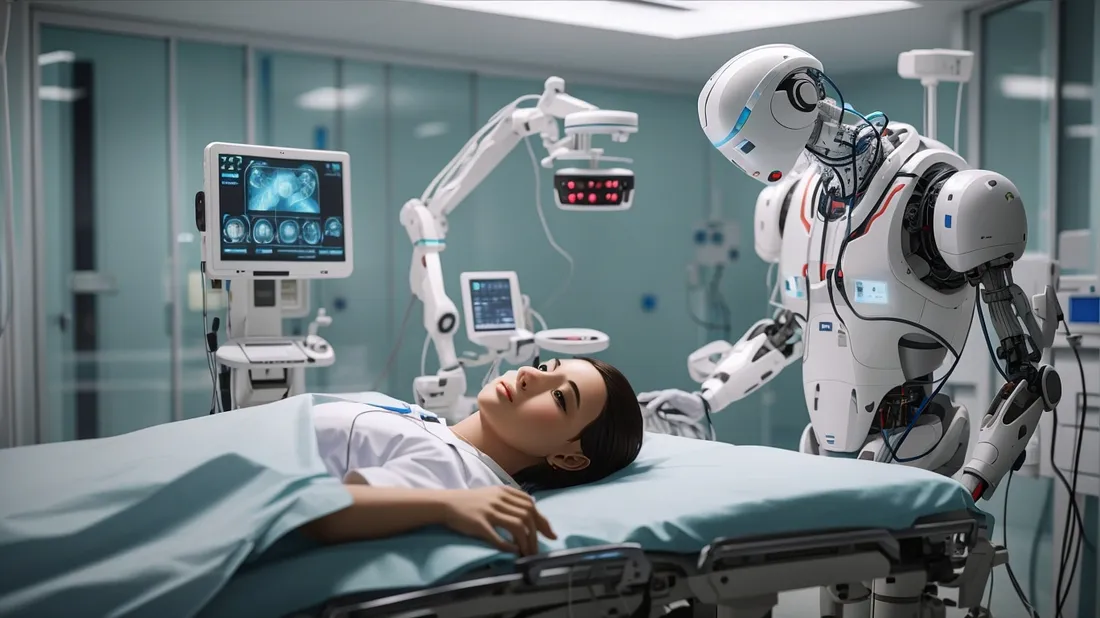The Role of Artificial Intelligence in Healthcare and Medicine
Let’s embark on an exciting journey that blends technology with medicine — unlocking the potential of Artificial Intelligence (AI) in Healthcare. Today, AI is revolutionizing various industries across the globe, including healthcare and medicine. This transformative technology seamlessly integrates into our healthcare system, right from diagnosing diseases at an early stage, creating personalized medicine, monitoring patient’s health, to even discovering new medicines.
• Enhancing Diagnosis and Medical Imaging with AI Technology
Artificial intelligence (AI) technology is playing a pivotal role in transforming the healthcare industry, particularly in enhancing diagnosis and medical imaging. With the potential to analyze vast amounts of medical data with unparalleled speed and accuracy, AI is revolutionizing the way doctors make diagnoses and interpret medical images. This technology has the ability to identify patterns and anomalies that may not be easily discernible to even the most seasoned healthcare professionals. By harnessing the power of AI, healthcare providers can now rely on advanced algorithms and machine learning techniques to assist in interpreting complex medical images, such as X-rays, CT scans, and MRIs. This not only helps in improving the accuracy of diagnoses but also enables doctors to make more informed treatment decisions. With the assistance of AI, healthcare professionals can quickly identify early signs of diseases, detect abnormalities, and precisely locate areas of concern. This not only enhances patient outcomes but also improves the overall efficiency and effectiveness of healthcare delivery. As the healthcare industry continues to embrace AI technology, the future holds tremendous potential for further advancements in diagnosis and medical imaging, ultimately leading to better healthcare outcomes for patients worldwide.
Disease Identification and Diagnosis
Caught in the early stages, many diseases, from cancer to diabetes, offer a higher survival rate. AI empowers clinicians to detect such conditions much earlier by identifying subtle changes in a patient’s health data that could signify a serious underlying issue.
- AI algorithms can scan medical records to predict disease risks, helping physicians make more informed diagnoses.
- Machine learning models can unveil patterns in complex medical data, highlighting any anomalies.
- Predictive analytics driven by AI can identify individuals who stand at higher risk of developing certain diseases, focusing on prevention over cure.
Personalized Medicine
- AI can gather insights from medical data, ranging from genomics to electronic health records, creating treatment plans tailored for each patient.
- By identifying patients’ unique compositions and vulnerabilities, AI can formulate personalized nutrition and fitness advice.
- AI-driven algorithms can predict patients’ responses to certain medications, helping doctors select the best treatments.

Comments
Post a Comment